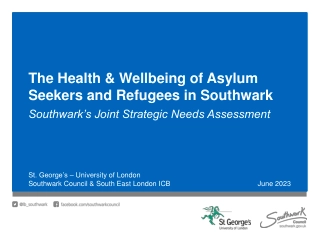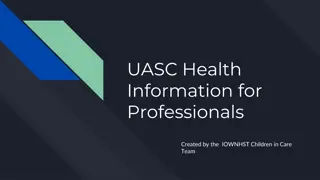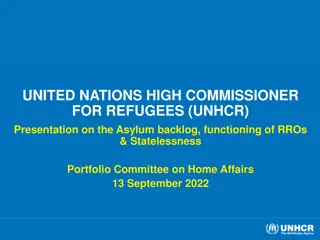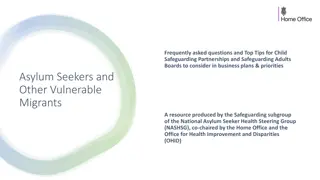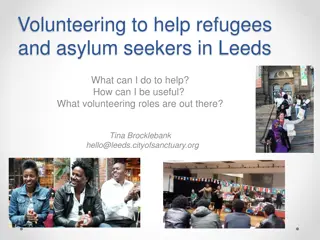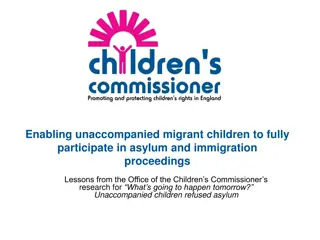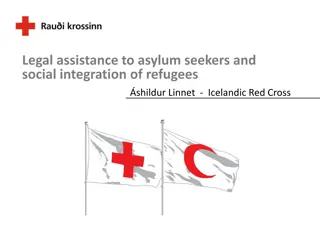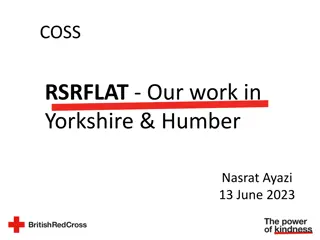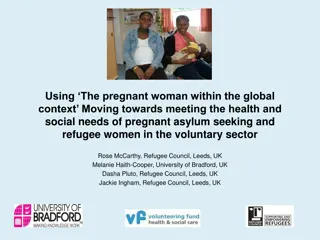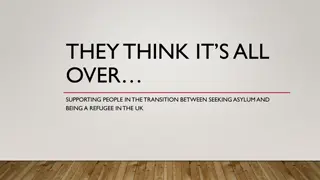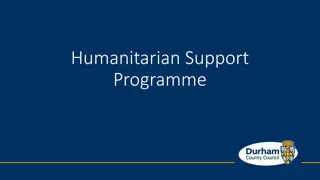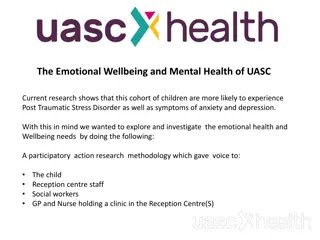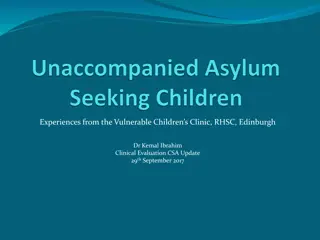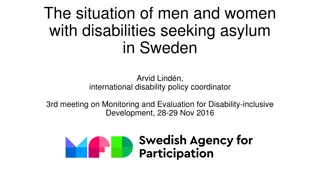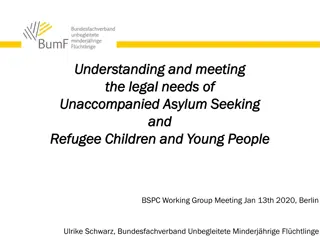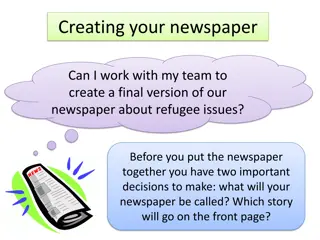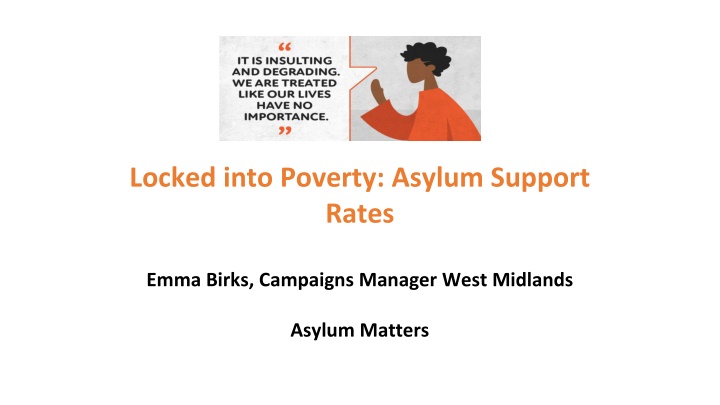
Asylum Support and its Impact on Vulnerable Individuals
Learn about asylum support, which provides financial assistance and accommodation to those seeking asylum in the UK. Uncover the challenges faced by individuals living on asylum support, including difficulty accessing food and the impact on mental health. Explore insights from a research survey conducted with asylum seekers, shedding light on their experiences and struggles.
Download Presentation

Please find below an Image/Link to download the presentation.
The content on the website is provided AS IS for your information and personal use only. It may not be sold, licensed, or shared on other websites without obtaining consent from the author. If you encounter any issues during the download, it is possible that the publisher has removed the file from their server.
You are allowed to download the files provided on this website for personal or commercial use, subject to the condition that they are used lawfully. All files are the property of their respective owners.
The content on the website is provided AS IS for your information and personal use only. It may not be sold, licensed, or shared on other websites without obtaining consent from the author.
E N D
Presentation Transcript
Locked into Poverty: Asylum Support Rates Emma Birks, Campaigns Manager West Midlands Asylum Matters
What is asylum support? People seeking asylum are not allowed to work except in exceptional circumstances, and aren t able to access mainstream benefits. This means people must access Home Office asylum support while they wait for a decision on their claim. There are currently more than 60,000 people living on asylum support in the UK. There are two types Section 95 and Section 4
What does asylum support consist of? Asylum support generally consists of a weekly payment and no- choice accommodation in dispersal areas across the UK. The financial support is currently at a flat rate of 39.63 per person, per week. While accommodation and utilities are provided for, people have only 5.66 a day to cover their essential living needs. The rates are set by the Home Office using a pick and mix methodology of ONS data and market research
The struggle to access food Affording food is very difficult! People sometimes have to travel long distances Mothers and children often live in shared accommodation with very limited storage space Many mothers struggle to buy nappies and formula milk for their babies. People are living on asylum support for months and even years. At the end of December 2020, 72% of people had been waiting for a decision on their claim for more than six months.
John told us he has lost 10 kilos in the last two years. Both he and his wife are suffering with depression and she is taking sleeping pills. He stated he was mentally worn down. Never before in my life have I struggled for food and to feed my family, every week you have to calculate everything, I can t work, I m always in fear of detention, my life is a trap.
Our research In July and August 2020, we ran a two-week snapshot online survey to hear from people seeking asylum about their experience of living on asylum support. The results are the basis of our report Locked into Poverty . 184 respondents From towns and cities across England, Wales and Scotland; 108 had children with them here in the UK; 76 did not.
Food: Are you able to buy enough food for yourself/your family? Insufficient funds No freezer Too far to carry food Too far from cheaper shops
Sometimes it's difficult to manage a budget since the cheapest supermarkets are located far away from where I live, and you have to spend more in the local stores. I would like to buy good quality food and these are expensive. I am not eating healthy because I need to save the money.
Baby items:Can you buy all the items you need for your baby? In
Because asylum seekers are not given enough money from NASS in order to be able to access the bare minimum. I would have to substitute food money in order [to buy] anything else and babies are expensive (diapers, baby food etc) and having 3 children myself, I know.
Impact of Covid 19 pandemic Not being able to be safe and buy food, groceries, cleaning products etc online [this is due to the fact that asylum seekers aren't allowed bank accounts] for it to be delivered to my house. I have had to risk my life and that of my family who have been at home this entire pandemic as I leave the house weekly in order to get food for my family. I have never been in a difficult situation like this before. People were buying food stuff in bulk but we couldn't. Even a common bag of rice, we can't afford. The coronavirus has really made our lives difficult. It's difficult to stay on a budget and avoid going to the biggest and cheapest shops because local stores are much more expensive.
Home schooling: Have you been able to do homeschooling?
What can we do? Call on the Home Secretary to reinstate the link with mainstream benefits by setting asylum support at 70% of Universal Credit. This would ensure people seeking asylum are able to meet their needs both during this pandemic and beyond. We are also calling on the Home Secretary to lift the ban on working.

